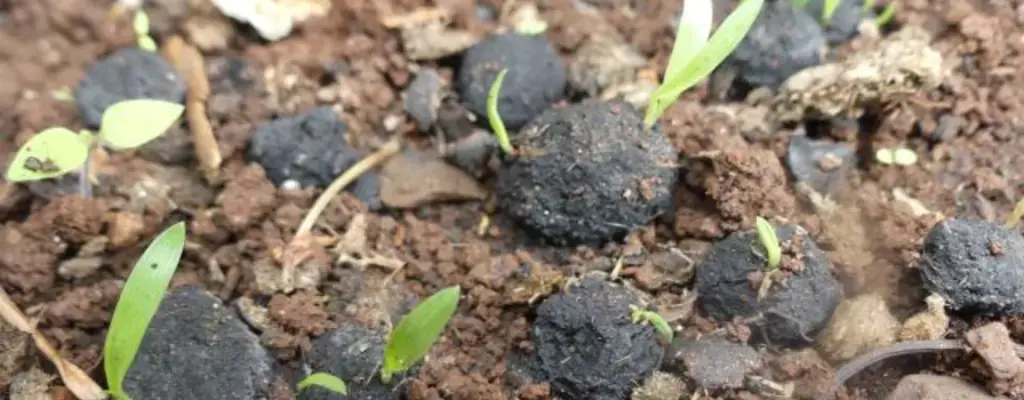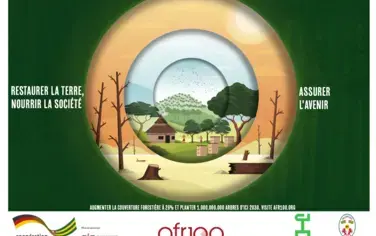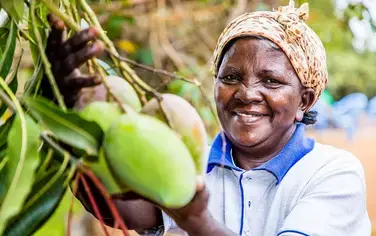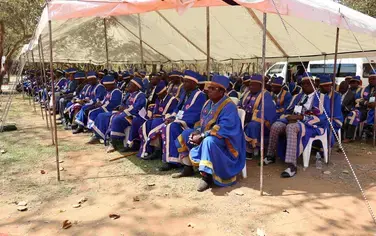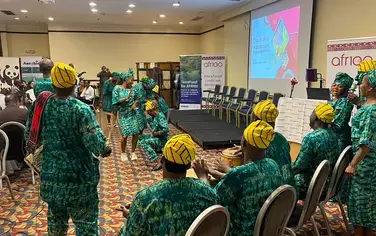In Kenya, the charcoal industry is big. Over half of Kenyan households rely on the fuel source for heating and cooking, especially in the country’s growing cities. But there is a problem: charcoal production, through the slow cooking of wood, has caused extensive deforestation across the vulnerable dryland ecosystems which span over 80% of Kenya.
Cookswell Jikos, a family-run Kenyan business, took up the challenge and has, together with Chardust Ltd, a pioneering briquette company, created a viable enterprise that is restoring degraded drylands throughout the country.
In the mid-1980s, Dr. Maxwell Kinyanjui developed the Kenya Ceramic Jiko, an oven that uses 50 percent less charcoal to produce the same amount of heat as traditional charcoal ovens. Dr. Kinyanjui believed that their adoption would reduce the need for charcoal and help stop deforestation. But households continued to use the same amount of charcoal, shifting their savings to heating water and their homes.
In the late 1990s, Dr. Kinyanjui and Martin Dunford decided to begin investigating the prospect of growing trees for charcoal in dryland areas. In 2016, based on these experiments, Teddy Kinyanjui, the company’s sustainability director, had an idea: what if there was an opportunity to reverse rampant deforestation by making it easy to plant trees?
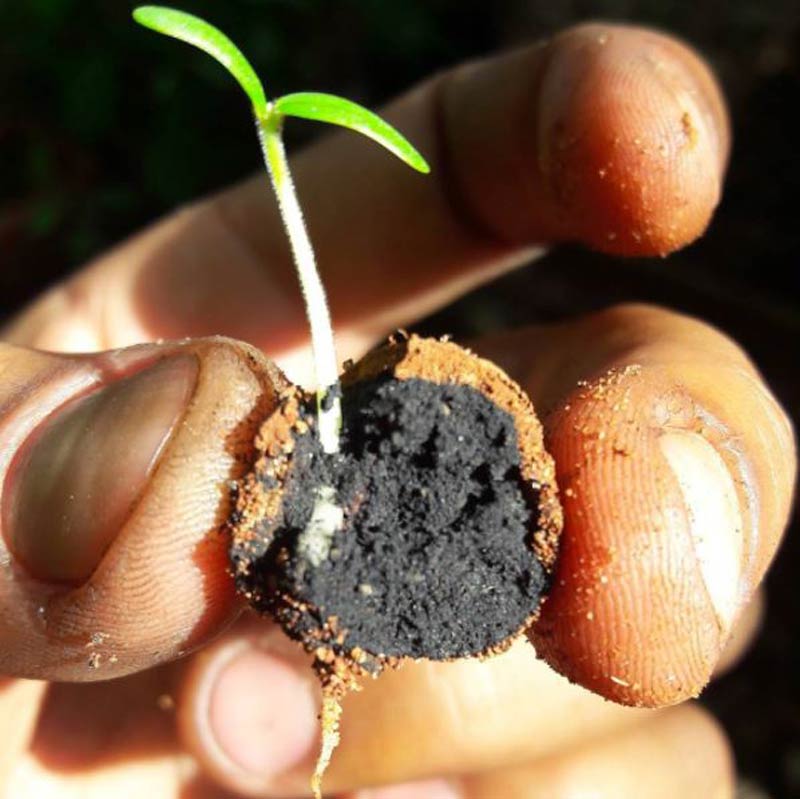
Kinyanjui noticed that heaps of charcoal dust were lying around markets throughout Kenya’s cities, so he and the Chardust Ltd team took a seed and placed it at the center of a marble-sized ball of charcoal dust, nutritious binders, and water to create the first biochar seedball. This is how Seedballs Kenya was born.
Today, Seedballs Kenya is thriving, enabling anyone with a little cash to plant thousands of trees with little effort. For Kinyanjui, it’s all about getting “the right tree in the right place.” That’s why the company only uses indigenous tree species, like the umbrella thorn acacia and the African juniper, and why Seedballs Kenya works with purchasers to ensure that the chosen species fit the local biome and land use.
After selecting the right species, the company advises customers –including schools, NGOs, companies, and individuals—to scatter the balls across their fields, whether by slingshot, helicopter, drone, or hand. The seeds then take root and begin to grow when the environmental conditions are right. Spreading seeds in the wrong areas can actually harm the ecological functionality of a landscape, so Seedballs Kenya encourages planters to only cast seeds over their own land or to get permission from village councils to cast them over collectively-held land.
Traditional reforestation projects rely on seedlings, which require labor, water, and time well before they take root in the soil. Seedballs Kenya eliminates that step – and reduces costs. According to Kinyanjui, the price of restoring Kenyan drylands in the traditional way is around $160 per hectare, but the new technique can cost as little as $8 per hectare. The trees reach maturity within four to 14 years and are then ready to provide the community with sustainable forest products, including charcoal and building materials.
Restoration through seedballs can also help make Kenya’s $427 million charcoal industry more sustainable. From each newly planted tree, charcoal suppliers can cut a few branches every year (the equivalent of one bag of charcoal). This type of sustainable harvesting allows communities to continue to supply charcoal to buyers and meet the rising demand for charcoal in cities, and the new trees help to mitigate climate change impacts and improve water availability. On top of that, planting trees can restore degraded land, helping Kenya meet its 5.1-million-hectare commitment to the African Forest Landscape Restoration Initiative (AFR100) and the Bonn Challenge.
For now, Seedballs Kenya is directing its profit into research to come up with more efficient and cost-effective applications of its technique. “We’ve produced two million individual seedballs so far [in total]. We should be doing that in a week,” Kinyanjui argues. He believes it is important that the private sector is involved in restoration in Africa. As project funding comes and goes and aid priorities shift, businesses that operate independently from aid and that have a long-term outlook are more likely to survive and actually restore land. Involving the private sector in restoration also creates opportunities for companies to include tree planting in their corporate social responsibility pledges.
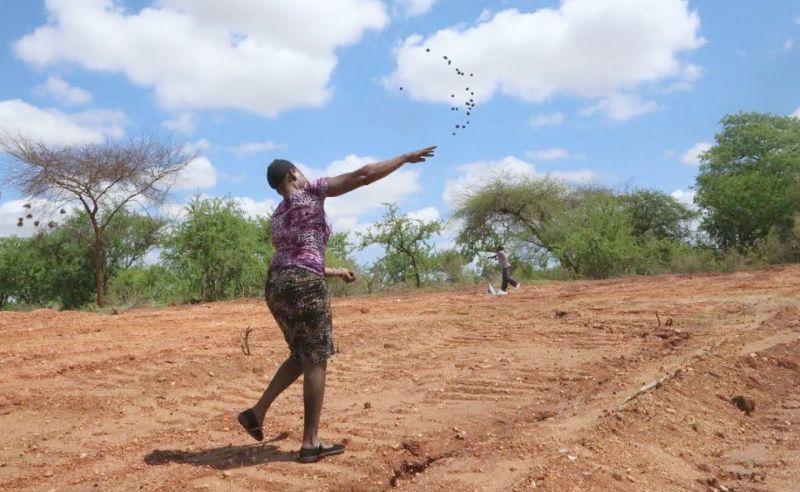
One of company’s biggest challenges moving forward, however, is increasing the total number of seeds that it can source. The state-run Kenya Forest Research Institute (KEFRI), the company’s supplier, can only provide a limited number of seeds. With that in mind, KEFRI and Seedballs Kenya want to explore paying local communities to collect seeds, which they can then sell to meet demand. If rural people could make more money reforesting land, they posit, Kenyans could plant millions of trees and boost rural incomes.
But it’s not the environmental benefits that set Seedballs Kenya apart, it’s the fact that the company has made planting trees fun. Kinyanjui has hosted dozens of slingshot competitions for young people in villages throughout Kenya. The seed balls are also popular for weddings and birthdays, where they get young people excited about restoring degraded land. Local and international media have also helped to spread the company’s message.
“Half of the battle is getting the right species and the right type of tree seed back into the right area,” Kinyanjui says. He is optimistic that with the support of local communities and enterprises and a sustainable business model, seedballs can help to restore millions of hectares of degraded land.
